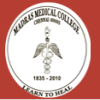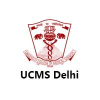How to become a Preventive Medicine Physician
Overview, Courses, Exam, Colleges, Pathways, Salary

Overview
Who is Preventive Medicine Physician ?
A preventive medicine physician is a medical professional specialising in preventive medicine, which focuses on promoting health, preventing diseases, and improving the overall well-being of individuals and communities. These physicians broadly understand public health, epidemiology, and clinical medicine. They work to identify and mitigate risk factors and implement preventive strategies to prevent illness and injury. Preventive medicine physicians are crucial in designing and implementing population-level health interventions, such as vaccination programs, health education campaigns, and policy recommendations.
They also work with individuals to assess their health risks, provide counselling on healthy lifestyle choices, and develop personalised prevention plans. These physicians may specialise in occupational medicine, aerospace medicine, or public health.
They may work in various settings, including hospitals, government agencies, research institutions, and community health organisations. Preventive medicine physicians contribute to the field through research, policy development, and advocacy for public health initiatives. Their work focuses on improving health outcomes and reducing the burden of preventable diseases and injuries on individuals and communities.
Typical day at work
What does Preventive Medicine Physician do?
- Health Assessments: They conduct comprehensive health assessments to evaluate individuals' health risks, including family history, lifestyle choices, and environmental factors. This helps identify potential health issues and develop appropriate prevention strategies.
- Disease Prevention: Preventive medicine physicians develop and implement preventive measures to reduce the incidence of diseases. They educate individuals and communities about healthy lifestyle choices, vaccination programs, and disease screening protocols.
- Health Promotion: They work to improve overall health by promoting healthy behaviours, such as exercise, proper nutrition, and stress management. They guide disease prevention and health maintenance, empowering individuals to take charge of their well-being.
- Policy Development: Preventive medicine physicians contribute to policy development by conducting research, analyzing health data, and making recommendations to government agencies and organizations. They advocate for public health initiatives and policies that promote disease prevention and community well-being.
- Epidemiological Investigations: They investigate disease outbreaks, track disease patterns, and analyze data to identify risk factors and develop strategies for prevention. They collaborate with epidemiologists and other health professionals to control and manage disease outbreaks.
- Occupational Health: Some preventive medicine physicians specialize in occupational health. They assess workplace hazards, develop safety protocols, and guide occupational health practices to protect workers' well-being.
- Research and Education: Preventive medicine physicians engage in research to advance the field of preventive medicine. They publish scientific studies, present findings at conferences, and educate medical students, residents, and other healthcare professionals about preventive medicine practices.
Abilities and Aptitude needed
What are the skills, abilities & aptitude needed to become Preventive Medicine Physician?
- Strong Analytical Skills: Preventive medicine physicians should have excellent analytical skills to interpret health data, assess risks, and make evidence-based decisions regarding preventive measures and interventions.
- Knowledge of Epidemiology and Public Health: A solid foundation in epidemiology, biostatistics, and public health is essential. Understanding population health, disease patterns, and the impact of various risk factors is crucial for effective preventive medicine practice.
- Communication and Education Skills: Effective communication is vital to educate individuals, communities, and policymakers about preventive strategies. Preventive medicine physicians should be able to convey complex medical information clearly and understandably.
- Problem-Solving Abilities: These physicians should possess strong problem-solving skills to identify health risks, develop appropriate preventive strategies, and address challenges in implementing preventive measures.
- Research Skills: A capacity for research and an understanding of research methodology are valuable in designing and conducting studies to assess the effectiveness of preventive interventions and inform public health policies.
- Interdisciplinary Collaboration: Preventive medicine physicians often collaborate with professionals from diverse fields, such as epidemiologists, public health officials, policymakers, and community organizations. The ability to collaborate and contribute to interdisciplinary teams is essential.
- Leadership and Advocacy: Preventive medicine physicians should have leadership skills to initiate and lead public health initiatives. Advocacy for preventive measures and policies that promote population health is also essential.
- Cultural Competence: Understanding and respecting cultural diversity is crucial in developing preventive strategies that are effective and culturally appropriate for diverse populations.
- Lifelong Learning: A commitment to continuous learning and staying updated with advancements in preventive medicine, public health, and related fields is vital for maintaining expertise and delivering evidence-based care.
Salary
Salary for Preventive Medicine Physician?
Salary for Preventive Medicine Physicians is as follows :
- Minimum Monthly Salary: For entry-level Preventive Medicine Physicians or those with limited experience, the monthly salary might range from INR 70,000 to INR 1,00,000 or more.
- Maximum Monthly Salary: Highly experienced and skilled Preventive Medicine Physicians, especially those with advanced certifications or leadership positions, may earn a monthly salary ranging from INR 2,00,000 to INR 3,50,000 or more.
- Annual Salary: The annual salary for entry-level Preventive Medicine Physicians could be approximately INR 8.4 lakhs to INR 12 lakhs per year. Experienced and well-qualified Preventive Medicine Physicians may earn a maximum yearly salary ranging from INR 24 lakhs to INR 42 lakhs or more.
- Highest-Paying Jobs and Scope: The highest-paying jobs for Preventive Medicine Physicians are often found in government health departments, public health organizations, and academic institutions. Preventive Medicine Physicians with expertise in health policy, epidemiology, and disease prevention may command higher salaries and have opportunities for career growth in administrative and research positions. As the emphasis on preventive healthcare increases, there will be a continued demand for Preventive Medicine Physicians to lead public health initiatives, design preventive programs, and implement population-based interventions.
Pathways
How to become an Preventive Medicine Physician?
Entrance Exam
Entrance Exam for Preventive Medicine Physician ?
Courses
Which course I can pursue?
Best Colleges
Which are the best colleges to attend to become an Preventive Medicine Physician?
Industries
Which Industries are open for Preventive Medicine Physician?
- Healthcare Systems: Preventive medicine physicians can work within healthcare systems, including hospitals, clinics, and medical centres. They may be involved in developing and implementing preventive health programs, conducting screenings, and promoting health and wellness initiatives.
- Government Agencies: Government agencies, such as the Centers for Disease Control and Prevention (CDC), the World Health Organization (WHO), and local health departments, often employ preventive medicine physicians. They contribute to public health initiatives, disease surveillance, policy development, and emergency preparedness.
- Public Health Organizations: Nonprofit and research organizations focused on public health, such as the American Public Health Association (APHA) and the National Institutes of Health (NIH), provide opportunities for preventive medicine physicians to contribute to research, policy development, and advocacy efforts.
- Occupational Health and Safety: Preventive medicine physicians specializing in occupational health can work in industries such as manufacturing, construction, and healthcare, ensuring workplace safety, conducting health assessments, and implementing preventive measures to protect workers' health.
- Insurance and Managed Care Companies: Some insurance companies and managed care organizations employ preventive medicine physicians to develop and manage preventive health programs, assess population health risks, and implement interventions to improve health outcomes and reduce healthcare costs.
- Academic Institutions: Preventive medicine physicians may work in academic settings, such as medical schools, universities, and research institutions. They contribute to teaching and mentoring medical students, conducting research, and disseminating knowledge through academic publications.
- Consulting and Global Health Organizations: Preventive medicine physicians can provide consulting services to organizations focused on global health, health policy, or program evaluation. They may work on international health projects, conduct evaluations, and provide expertise in designing and implementing preventive health interventions.
internship
Are there internships available for Preventive Medicine Physician?
- Residency Programs: Preventive medicine residency programs provide a structured training experience that includes rotations in various settings, such as public health departments, community health centres, and research institutions. These programs offer hands-on experience in preventive medicine practice and research.
- Public Health Fellowships: Many public health agencies and organizations offer fellowship programs that allow physicians to gain practical experience in public health practice. These fellowships often focus on specific areas, such as epidemiology, policy development, or global health, providing opportunities to work on research projects and contribute to public health initiatives.
- Research Opportunities: Engaging in research projects within academic institutions, public health organizations, or research centres can provide valuable experience in conducting epidemiological studies, analyzing data, and contributing to the evidence base of preventive medicine.
- Collaborative Projects: Collaborating with public health agencies, community organizations, or nonprofit groups on specific projects can provide exposure to real-world preventive medicine initiatives and allow physicians to contribute their skills and knowledge to address community health needs.
- Continuing Education Programs: Participating in continuing education programs, workshops, and conferences focused on preventive medicine and public health can provide opportunities to learn from experts in the field, engage in discussions, and network with professionals working in preventive medicine.
Career outlook
What does the future look like for Preventive Medicine Physician?
The future for Preventive Medicine Physicians appears promising as the importance of preventive healthcare continues to gain recognition. With a growing emphasis on promoting healthy lifestyles and preventing diseases before they occur, the demand for skilled Preventive Medicine Physicians is expected to increase.
Preventive Medicine Physicians are crucial in public health initiatives, corporate wellness programs, and community health initiatives. They focus on implementing preventive measures, conducting screenings, and advocating for healthy behaviors to reduce the prevalence of chronic illnesses and improve overall population health.
Advancements in technology and data analytics will further enhance the practice of preventive medicine, enabling physicians to identify at-risk populations and develop targeted interventions. Telemedicine and digital health platforms will also expand access to preventive care, making it more convenient for patients to engage in proactive health management.
Preventive Medicine Physicians will have excellent career prospects as healthcare systems shift their focus from reactive treatment to proactive prevention. Their expertise will be sought in various settings, including government agencies, healthcare organizations, research institutions, and public health departments.




.webp)


